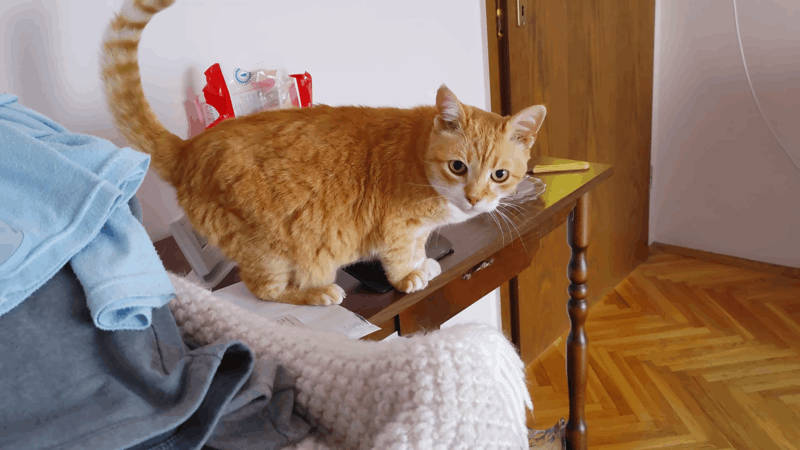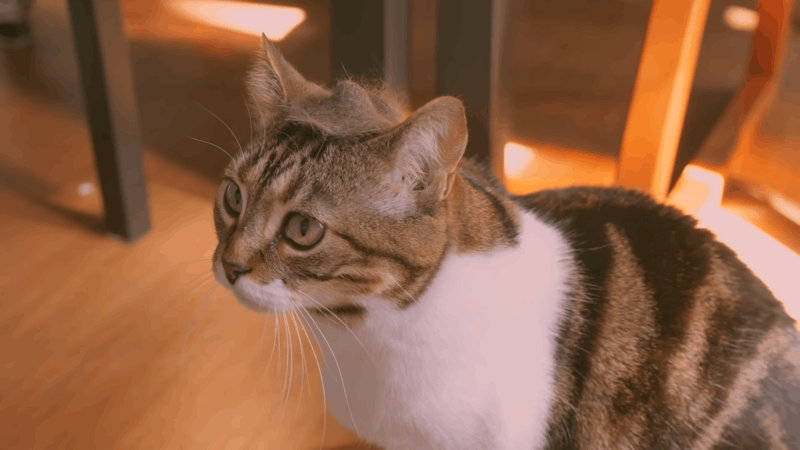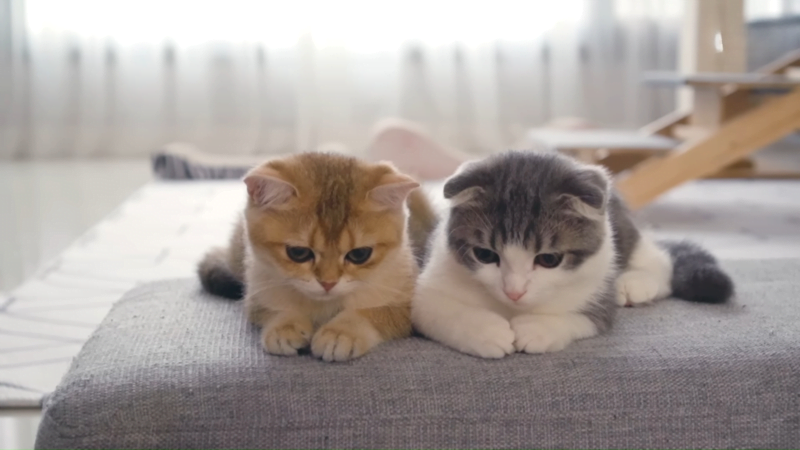No products in the cart.
Cat stomach ache can cause discomfort and impact the overall health of our feline companions. While cats cannot directly communicate their pain, they may exhibit signs such as changes in behavior, digestive issues, and physical discomfort. In this blog, we will explore the definition and impact of cat stomach ache, cat stomach ache symptoms, and what can I give my cat for stomach pain. Additionally, we will discuss the potential use of CBD for stomach pain in cats.
Definition of Cat Stomach Ache?
A cat stomach ache refers to when your furry friend experiences discomfort or pain in their tummy area. It’s similar to how we humans feel when we have an upset stomach. Cats can’t communicate their pain directly, but they may show signs of discomfort like changes in behavior, digestive issues, or physical discomfort.

The Impact of Stomach Ache on Cats’ Health
Stomach aches can have a significant impact on a cat’s health. They can make your furry companion feel uncomfortable and unhappy. Cats may become less active, lose their appetite, or even lose weight if the stomach ache persists. It’s essential to address stomach aches promptly to prevent further health problems and ensure your cat’s overall well-being.
Common Causes of Stomach Ache in Cats
Dietary issues: Cats who have food allergies or intolerances, a sudden change in their diet, or eat damaged or contaminated food may develop stomach pain. Overeating or swallowing objects that are hard to digest can also cause tummy troubles.
Gastrointestinal infections: viral, bacterial, or parasitic illnesses that damage the digestive tract can cause cats to have stomach pains. Vomiting, diarrhea, and abdominal pain are among the symptoms that these illnesses can cause.
Cat Stomach Ache Symptoms
When a cat is experiencing a stomach ache, it may exhibit several symptoms that indicate discomfort. These symptoms can include:
- Vomiting or regurgitation: Cats may expel undigested food or bile through vomiting or regurgitation, often accompanied by retching or heaving.
- Diarrhea or changes in stool consistency: loose or watery stools can be a sign of gastrointestinal upset.
- Loss of appetite or reluctance to eat: Cats with stomach aches may show a decreased interest in food or refuse to eat altogether.
- Excessive drooling or excessive swallowing: Increased salivation or frequent swallowing can be observed in cats with stomach discomfort.
- Lethargy or decreased activity levels: cats may appear less energetic, sleep more than usual, or show a lack of interest in play.
- Restlessness or pacing: Some cats may exhibit restless behavior, such as pacing or repeatedly changing positions.
- Hiding or seeking solitude: Cats in pain or discomfort may retreat to secluded areas or hide as a way to cope with their discomfort.
- Abdominal sensitivity or discomfort when touched: Cats may exhibit signs of discomfort when their abdominal area is touched or palpated.
- Changes in grooming habits or neglecting to groom altogether: Cats experiencing stomach aches may groom themselves excessively or, conversely, neglect their grooming routine.

Behavioral Changes That Indicate Stomach Discomfort in Cats
Cats experiencing stomach discomfort may exhibit various behavioral changes, including:
- Increased irritability or aggression: Cats in pain or discomfort may become more irritable and easily agitated, potentially displaying aggression towards humans or other pets.
- Avoiding interaction or withdrawal from social activities: Cats may seek solitude or avoid social interactions that they would typically engage in.
- Unusual restlessness or pacing: Restlessness characterized by constant movement or pacing around the house may be observed.
- Excessive grooming or licking in the abdominal area: Cats may excessively groom or lick their abdominal area as a way to soothe themselves or alleviate discomfort.
- Lying in unusual positions or seeking out cool surfaces to lie on: Cats may find comfort by lying in unusual positions or seeking out cool surfaces like bathroom tiles or linoleum floors.
- Decreased grooming or neglecting their appearance: Cats may neglect their grooming routine when they are experiencing discomfort or pain.
- Changes in litter box habits, such as avoiding the litter box or using it more frequently: Cats may avoid using the litter box altogether or exhibit increased frequency in using it due to digestive issues.
- Excessive vocalization or meowing that seems unusual for their typical behavior: Cats may vocalize more frequently or exhibit specific types of vocalizations that indicate their distress or discomfort.
Symptoms That Indicate a Severe or Emergency Situation
Certain symptoms or behaviors associated with a cat’s stomach ache may indicate a severe or emergency situation that requires immediate veterinary attention. These include:
- Dehydration and electrolyte imbalances can result from your cat’s severe or ongoing vomiting or diarrhea, which is also known as uncontrollable vomiting or diarrhea. This requires prompt medical attention.
- Inability to keep any food or water down: If your cat is unable to retain any food or water and continues to vomit or regurgitate immediately after consuming, it may indicate a blockage or a severe underlying issue that needs immediate veterinary evaluation.
- Abdominal distension or bloating: Bloating or abdominal distension may be a sign of a potentially fatal illness such as gastric dilatation-volvulus (GDV) or intestinal obstruction, which necessitates immediate veterinary care.
- Straining or difficulty while urinating or defecating: A urinary blockage or gastrointestinal obstruction, both of which can be emergencies requiring urgent care, may be the cause of your cat’s straining or difficulty urinating or defecating.
- Presence of blood in vomit, stool, or urine: Blood in any body output, including vomit, stool, or urine, is a worrying symptom that requires immediate attention from a veterinarian.
- Lethargy or extreme weakness: If your cat shows signs of being particularly weak, sluggish, or unresponsive, this could indicate a serious disease or systemic sickness that needs to be treated right away by a veterinarian.
- Signs of dehydration: Dehydration symptoms include dry mouth, sunken eyes, elasticity loss in the skin, and severe thirst. Dehydration can be caused by prolonged vomiting, diarrhea, or an underlying medical condition.
- Seizures or sudden loss of consciousness: seizures or sudden loss of consciousness are critical signs that demand immediate veterinary care to determine the underlying cause and provide appropriate treatment.
- Pale or yellowish gums: abnormal gum color, such as pale or yellowish gums, can indicate severe illness, blood disorders, or liver problems. It requires immediate veterinary evaluation.
- Unresponsiveness or uncoordinated movements: If your cat becomes unresponsive, disoriented, or exhibits uncoordinated movements, it could be a neurological emergency or a sign of systemic illness. Urgent veterinary attention is essential.
What Can I Give My Cat for Stomach Pain?
When it comes to giving your cat any medication or treatment for stomach pain, it is crucial to consult with a veterinarian first. They can properly diagnose the underlying cause of the stomach pain and recommend appropriate treatment options. Only a veterinarian can prescribe medications or provide specific guidance tailored to your cat’s needs.
In general, it’s important to avoid giving over-the-counter human medications to cats without veterinary approval, as many human medications can be toxic or harmful to them. Certain medications that are safe for humans may not be safe for cats due to differences in metabolism and sensitivity.

CBD for Stomach Inflammation in Cats
CBD has been recognized for its potential anti-inflammatory properties, which may make it a promising option for managing stomach inflammation in cats. However, it’s important to note that research on CBD specifically for stomach inflammation in cats is limited, and further studies are needed to establish its effectiveness.

Considerations and Safety Precautions When Using CBD
When considering CBD for stomach inflammation in cats, it’s crucial to consult with a veterinarian who is knowledgeable about CBD use in animals. They can provide guidance on proper dosage, formulation, and potential interactions with other medications. Additionally, consider the following safety precautions:
- Quality and sourcing: Choose CBD products specifically formulated for pets from reputable manufacturers. Look for third-party lab testing to ensure quality, purity, and the absence of contaminants.
- THC content: Ensure that the CBD product contains minimal levels of THC, as THC can be toxic to cats. It’s best to use CBD products that are labeled as THC-free or have THC levels below the legal limit.
- Individual cat considerations: Cats may have varying sensitivities or reactions to CBD. Monitor your cat closely for any adverse effects, and discontinue use if any negative reactions occur.
- Dosage: Follow the veterinarian’s recommended dosage guidelines for your cat’s specific condition and size. Starting with a low dose and gradually increasing it if needed is advisable.
- Side effects: While CBD is generally considered safe, potential side effects in cats may include drowsiness, dry mouth, or changes in appetite. Monitor your cat for any unusual reactions and consult your veterinarian if concerns arise.
CBD’s Potential Benefits for Stomach Pain in Cats
CBD may offer potential benefits for managing stomach pain in cats due to its potential anti-inflammatory and analgesic properties. It may help alleviate discomfort associated with stomach inflammation and reduce pain perception. Additionally, CBD’s calming effects may help cats relax and reduce stress-related symptoms that can exacerbate stomach pain.
How CBD May Help Regulate Stomach Pain in Cats
CBD interacts with the endocannabinoid system, which plays a role in regulating various physiological processes, including pain perception and inflammation. CBD for cats may help regulate stomach pain in cats by modulating the activity of cannabinoid receptors and influencing neurotransmitter release, which can contribute to pain relief and reduce inflammation.
Conclusion
Cat stomach ache can cause discomfort and pain, and it’s important to be attentive to symptoms such as changes in appetite, vomiting, diarrhea, lethargy, restlessness, and abdominal sensitivity. Severe or emergency symptoms require immediate veterinary attention. Avoid giving over-the-counter medications without veterinary guidance. CBD may benefit stomach inflammation and pain in cats, but it’s important to consult a knowledgeable veterinarian for guidance on quality, dosage, and potential side effects.
I am Nelson Cooper, I pursue my passion for writing and my belief is that cats love humans. I enjoy traveling and have a deep appreciation for the beauty of nature, as well as a soft spot for animals, particularly cats.



